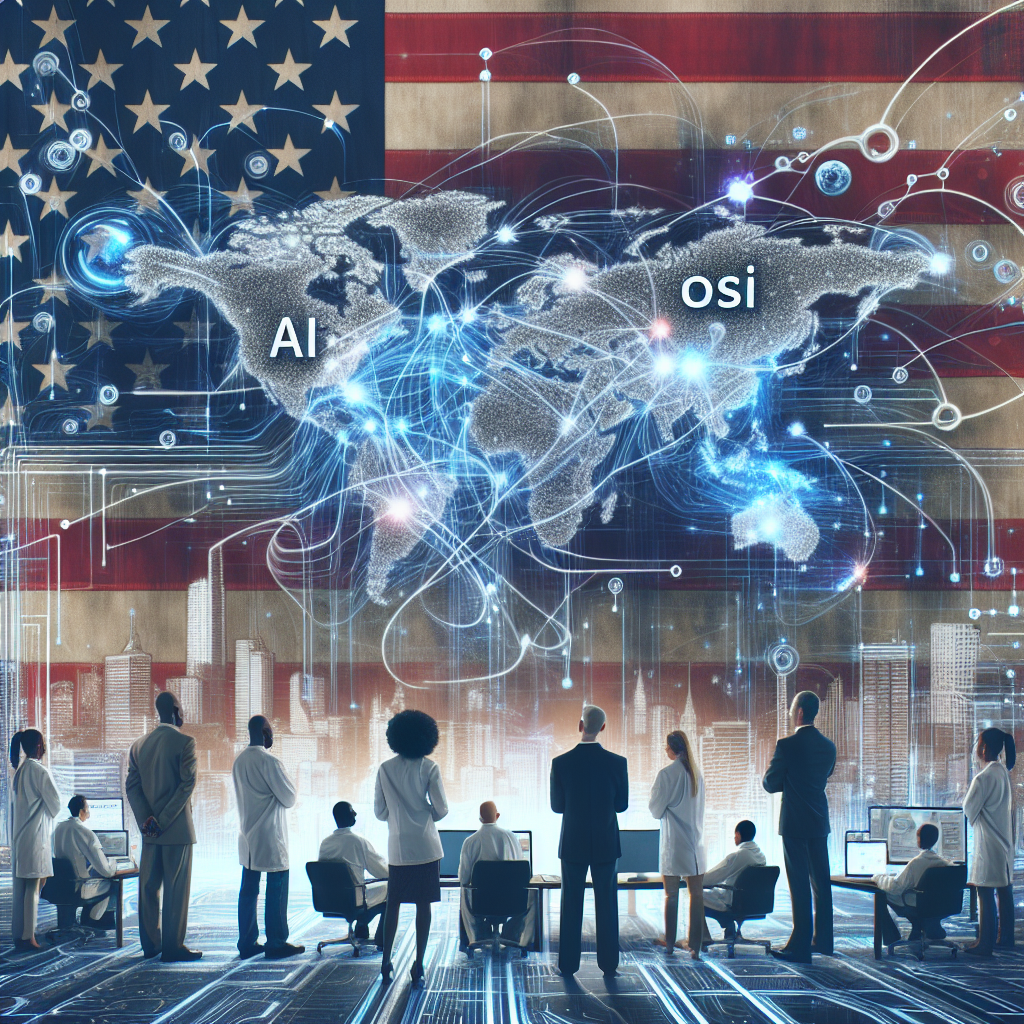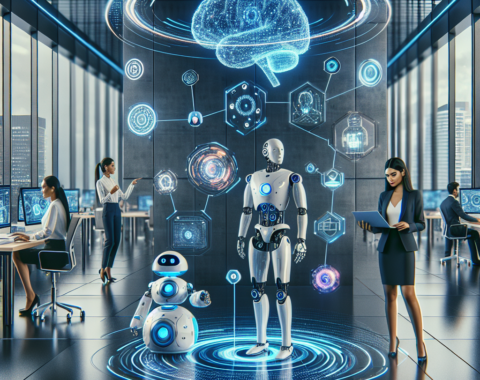
Harnessing Open Source AI for American Leadership and Global Security
The advent of artificial intelligence (AI) presents a transformative opportunity for nations worldwide. As AI technologies evolve, the potential for open source AI to propel American leadership and fortify global security has gained significant traction. This approach, driven by collaboration and transparency, holds the key to democratizing innovation and enhancing preparedness against emerging threats. In this post, we delve deep into how open-source AI can be a catalyst for American leadership while reinforcing global security measures.
Understanding Open Source AI
Open source AI refers to AI technologies and tools that are publicly accessible for anyone to use, modify, and distribute. These technologies extend beyond proprietary software models, emphasizing collaboration and community-driven innovation. The core attributes of open source AI include:
- Transparency: Source codes and algorithms are open for scrutiny and evaluation.
- Collaboration: A global community of developers, researchers, and enthusiasts contribute to ongoing development.
- Accessibility: Universities, startups, and individuals can access cutting-edge technologies without high-cost barriers.
Through these elements, open source AI fosters an innovative ecosystem that can significantly enhance the technological leadership of nations.
The Role of Open Source AI in American Leadership
Embracing open source AI stands to bolster American leadership by:
Fostering Innovation
The collaborative nature of open source AI encourages a free exchange of ideas and solutions. By leveraging global talent, American industries can accelerate innovation cycles:
- Rapid Prototyping: Open access to source codes allows for quicker testing and development of AI applications, helping the U.S. maintain its competitive edge.
- Interdisciplinary Collaboration: Cross-industry and cross-sector partnerships pave the way for groundbreaking innovations across healthcare, finance, autonomous systems, and more.
Enhancing Education and Skill Development
Open source AI provides an invaluable toolkit for educators and learners:
- Hands-on Learning: Students and professionals can engage with real-world AI projects, bridging the gap between theory and practice.
- Curriculum Development: Educational institutions can incorporate cutting-edge AI projects and tools into their curricula, preparing the workforce of the future.
Promoting Ethical and Transparent Development
Ethical AI development is a cornerstone of responsible innovation. Open source initiatives facilitate ethical practices by encouraging:
- Code Audits: Open codebases allow for independent audits, ensuring AI systems align with ethical guidelines.
- Bias Mitigation: Diverse teams can collaboratively identify and mitigate biases in AI models.
Enhancing Global Security Through Open Source AI
Open source AI plays a pivotal role in building resilient systems that protect against global threats. It can enhance security in several ways:
Strengthening Cybersecurity
Cybersecurity frameworks based on open source AI offer robust defenses against cyber threats:
- Real-Time Threat Detection: AI models can monitor anomalies in real-time, providing rapid responses to cyber intrusions.
- Collaborative Defense Strategies: Global research communities can share threat insights and security patches, fortifying defense mechanisms worldwide.
Facilitating Crisis Response
In crisis situations, AI-driven methodologies streamline disaster response and management:
- Data Analysis: AI tools can process vast datasets, delivering actionable insights for emergency response teams.
- Predictive Modeling: Proactive measures leverage AI to predict natural disasters and optimize resource allocation.
Promoting International Cooperation
At a geopolitical level, open source AI fosters international cooperation:
- Shared AI Solutions: Nations can collaborate on AI-driven solutions for border security, counter-terrorism, and humanitarian efforts.
- Policy Development: Collaborative platforms contribute to formulating global AI policies and standards.
The Road Ahead: Navigating Challenges and Opportunities
While the potential of open source AI is immense, it comes with its own set of challenges:
- Data Privacy Concerns: Ensuring data privacy and securing sensitive information remain top priorities.
- Intellectual Property Rights: Balancing openness with intellectual property protection requires a nuanced approach.
Despite these challenges, the opportunities presented by open source AI are boundless. Governments, industries, and academia must unite to create a conducive environment for AI innovation, ensuring that the U.S. remains at the forefront of technological leadership while championing global security.
Conclusion
In harnessing the potential of open source AI, America can assume a transformative role in leading AI innovation and crafting a safer world. By championing transparency, collaboration, and ethical development, the United States can set a precedent for responsible AI use that benefits not only its citizens but populations worldwide. The journey towards AI-driven global security is collective, and open source AI stands as a beacon to guide this endeavor.




